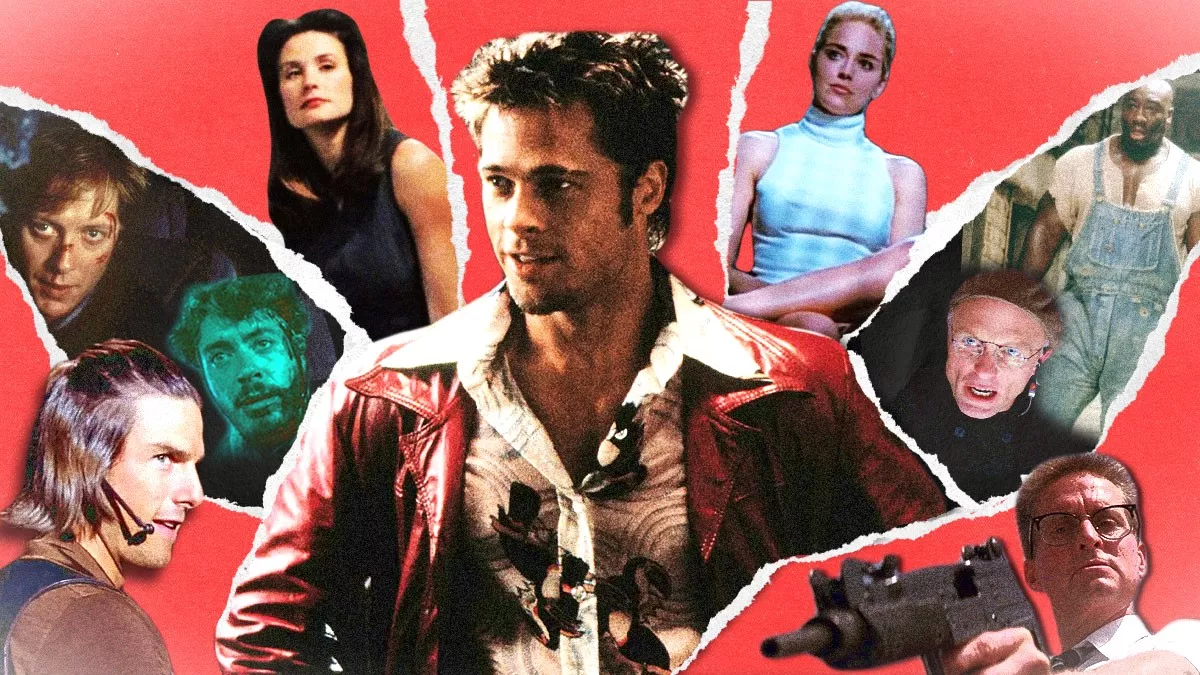Renowned political scientist Francis Fukuyama boldly declared the conclusion of history in the 1990s, asserting that the triumph of liberal democracies and the emergence of the United States as the global power marked the ultimate form of governance. Yet, those who experienced the decade firsthand understand that its reality was far from idyllic, contrary to the optimistic visions of figures like Bill Clinton and Tony Blair. Amidst this dichotomy, popular culture reflected the fragmented nature of our lives, giving rise to a collection of profoundly controversial movies.
While acknowledging notable breakthroughs like Quentin Tarantino’s introspective and intensely violent “Pulp Fiction” and Paul Thomas Anderson’s exploration of the intricacies of chosen family in “Boogie Nights,” it is important to recognize the thriving independent film scene that granted filmmakers the freedom to delve into the darker aspects of human existence and tackle complex subjects, albeit with varying degrees of success.
In compiling this list, our focus lies not on movies that sparked controversy as a whole, but on the characters themselves who provoked intense discussions. Thus, works such as Larry Clark’s exploitative “Kids” or Oliver Stone’s conspiracy-laden thriller “JFK” are omitted, as the former lacks significant controversy surrounding its characters (we can all agree they’re troublesome individuals) and the latter stirs controversy more for its underlying theory. Instead, we present ten characters whose actions continue to perplex us, even decades later.
Catherine Tramell (Basic Instinct, 1992)
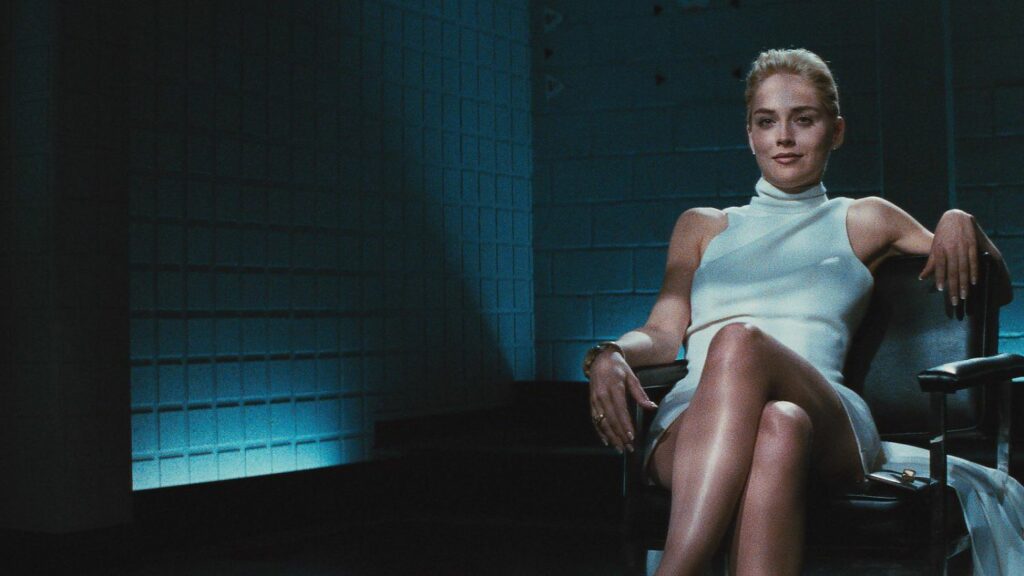
In the 1980s, filmmakers sought inspiration from the 1950s cinema to either embrace or reject the family values and austerity associated with the Reagan and Thatcher administrations. However, as the 1990s dawned, a new fascination emerged: film noir, a genre teeming with morally ambiguous characters, particularly the Femme Fatale. Notable figures such as Phyllis Dietrichson (Barbara Stanwyck) from “Double Indemnity” and Debby Marsh (Gloria Grahame) from “The Big Heat” became alluring temptresses for the flawed men at the heart of their respective films.
During the 1990s, the erotic thriller genre revived the iconic figure of the Femme Fatale, with one standout being the notorious Catherine Tramell from “Basic Instinct,” helmed by the audacious Dutch director Paul Verhoeven. Michael Douglas portrayed Nick Curran, a sleazy detective who becomes entangled with Tramell, the prime suspect in a murder case. Played with unwavering control and charisma by Sharon Stone, Tramell shocked audiences of that era and continues to provoke today’s more reserved viewers. She fearlessly embraces her sexuality, even as the film attempts to mystify and intimidate female desire. Nowhere is this more evident than in the infamous interrogation scene, where Tramell, unencumbered by undergarments, tantalizingly uncrosses her legs, revealing herself to both the interrogators and the mesmerized audience. While Stone later revealed her discomfort with the nudity, a sentiment seemingly supported by Verhoeven’s remarks during his commentary for “Total Recall,” none of that unease is apparent on screen, amplifying the unsettling nature of Tramell’s character.
William “D-Fens” Foster (Falling Down, 1993)
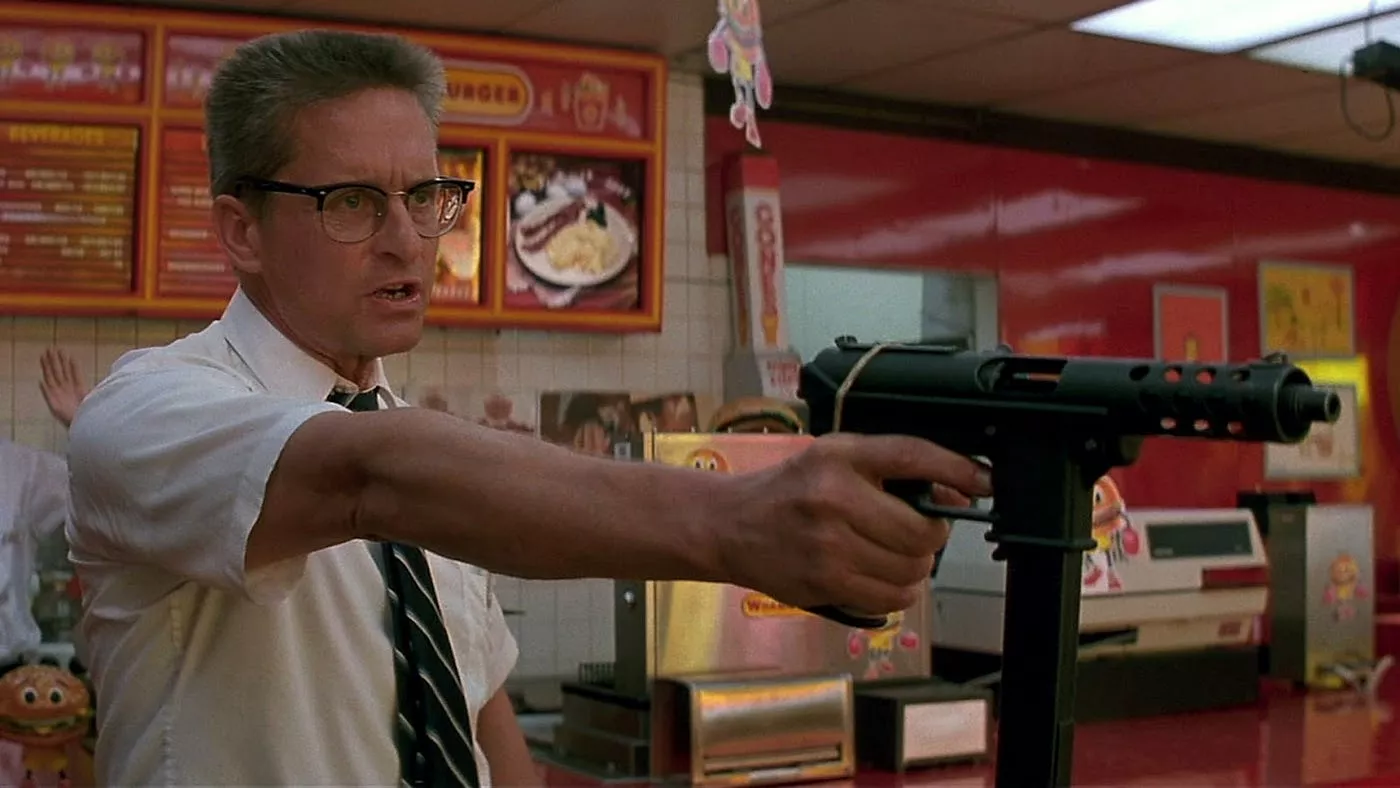
In McDonald’s, frustrations can arise, and we might feel disempowered within our capitalist society. However, the majority of us understand the importance of treating minimum wage workers with respect, knowing that they follow policies they didn’t create. It is unthinkable to resort to intimidation with a gun just to demand breakfast, yet that is precisely what William Foster does in the darkly humorous film “Falling Down,” directed by Joel Schumacher (who has a repertoire beyond “Batman & Robin,” mind you). Portrayed by a notably unglamorous Michael Douglas, Foster perceives himself as an ordinary individual who has grown weary of being pushed around and is now prepared to push back.
It is understandable why many might sympathize with Foster’s character (and indeed, they did). Like his spiritual successor, the Joker, Foster inhabits a society that claims to be civilized. However, akin to the Joker, Foster directs most of his anger towards those who lack the same privileges he, a heterosexual white cisgender man in America, enjoys. While Foster does confront a white supremacist, his primary adversaries are minorities, individuals of lower social class, and women. Although the movie portrays his behavior as reprehensible, it becomes difficult not to view Foster as a role model for certain men today who unfortunately perpetrate mass shootings in America on a regular basis.
Meredith Johnson (Disclosure, 1994)
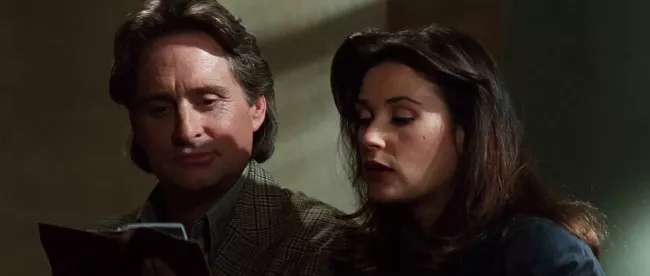
Adding to Michael Douglas’s repertoire is “Disclosure,” a thrilling tech-centric film that aims to deliver a message. Specifically, it asserts that men can be the overlooked victims of workplace sexual harassment. Adapted from a novel by Michael Crichton, the author of “Jurassic Park,” and directed by Barry Levinson (known to the younger generation as the father of “Euphoria” creator Sam), “Disclosure” weaves its corporate espionage storyline around a narrative that attempts to portray sexual harassment as intriguing—when it happens to a man.
In the movie, Douglas portrays Tom Sanders, who becomes subordinate to his former girlfriend following a company merger. This ex-girlfriend, Meredith Johnson (played by Demi Moore), exploits her newfound authority to coerce Sanders into resuming their relationship, regardless of his desire to focus on his job. In more skilled hands, “Disclosure” might have utilized Meredith’s gender-reversed plot to critique the patriarchy and capitalism, exposing their power structures. However, Levinson seems more inclined to tantalize the audience, resulting in a film where its point is as shallow as its virtual reality sequences are realistic.
Wayne Gale (Natural Born Killers, 1994)
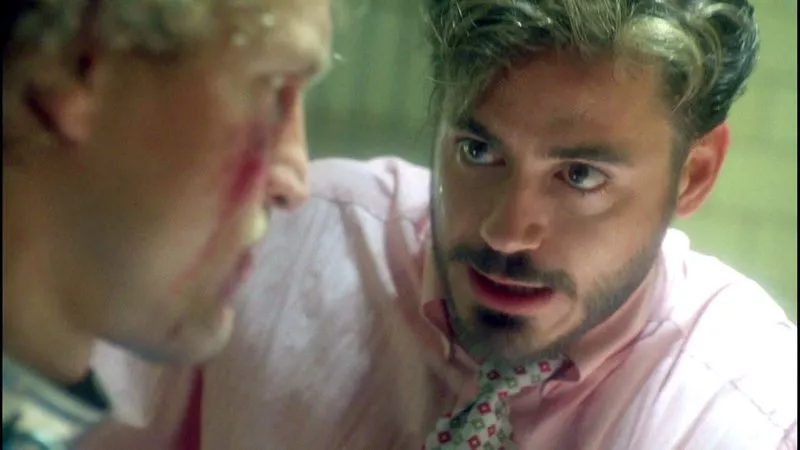
If “Falling Down” foreshadowed the unsettling rise of mass shootings in the US, then “Natural Born Killers” envisioned the future of 24-hour news. Directed by Oliver Stone and based on a story by Quentin Tarantino, the film follows Mickey and Mallory Knox, a modern-day equivalent of Bonnie and Clyde, portrayed by Woody Harrelson and Juliette Lewis. It is evident that the movie portrays Mickey and Mallory as disturbed individuals shaped by their traumatic pasts, reflecting the societal skepticism towards therapy while acknowledging the potential repercussions of troubled childhoods in adulthood. However, the film primarily directs its criticism towards the news media, which actively fuels the couple’s thirst for notoriety.
At the forefront of this critique is Wayne Gale, a sleazy tabloid journalist portrayed with cunning charm and an Australian accent by Robert Downey Jr. Much like the other characters in the movie, including an unexpectedly over-the-top Tommy Lee Jones, Gale manipulates the Knoxes for his own gain, exploiting remorseless murderers to enhance his personal fame. While Gale’s fate turns sour on a personal level, the news media machine thrives, continuing to provide a platform for sensationalizing criminals even after his demise. It’s not hard to see that Wayne Gale’s controversial tactics have, in many instances, morphed into accepted practices within contemporary journalism, as evident in certain recent broadcasts.
James Ballard (Crash, 1996)
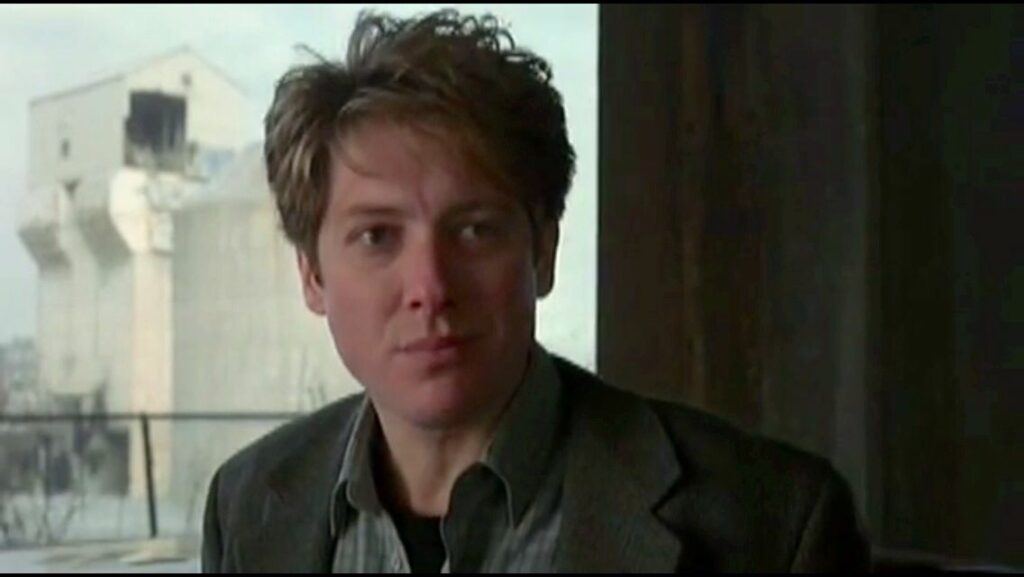
“Crash” delves into the lives of individuals who derive arousal from car crashes. However, it is important to clarify that the film’s inclusion on this list is not intended to shame or judge anyone’s personal preferences. At Spot.Monster, we respect diverse interests and believe in consenting adults exploring their desires freely. Yet, when public roads and heavy vehicles come into play, matters of consent become complex, which is why “Crash” is featured here. Directed by David Cronenberg and based on J.G. Ballard’s novel of the same name, the movie follows the sexual encounters and escapades of James Ballard (portrayed by James Spader), who discovers a newfound vitality in his romantic life after experiencing a car accident.
Cronenberg’s exploration of the mind-body relationship enabled him to approach the film’s characters without passing judgment. Nevertheless, the initial audience reactions were marked by shock. The explicit portrayal of sexual scenes combined with graphic violence even led Francis Ford Coppola to distance himself from the Grand Jury of the 1996 Cannes Film Festival, choosing not to participate in awarding recognition to Cronenberg. Additionally, the film faced challenges with its theatrical distribution in the United States and remains legally restricted from being shown in London’s West End. All these repercussions stem from the fact that James Ballard harbors a very specific and unique kink.
Chad (In the Company of Men, 1997)
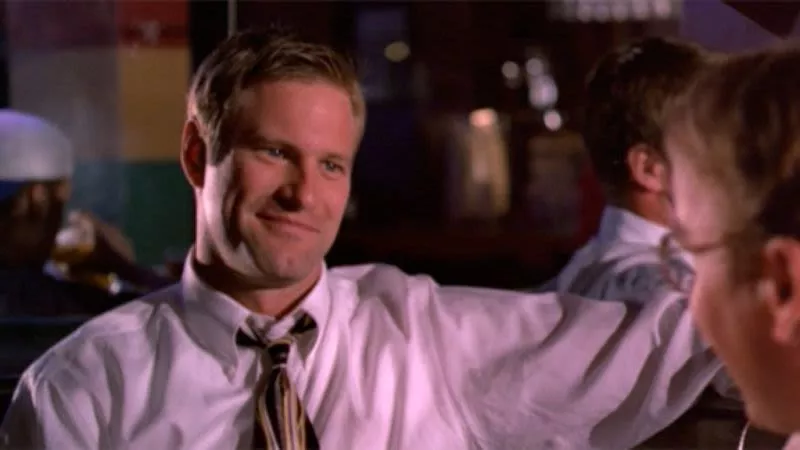
There is a frequently cited saying, often attributed to Francois Truffaut, that claims there are no true anti-war movies because the medium of cinema inherently presents war as exciting. A similar observation can be made about movies attempting to critique toxic masculinity, as the portrayal of a charismatic and repugnant character unavoidably enhances their charisma and allure. This is exemplified in the character of Chad, the callous corporate bro in Neil LaBute’s “In the Company of Men.” Aaron Eckhart’s breakthrough performance brings Chad to life, as he and his colleague Howard (played by Matt Malloy) decide to express their frustrations towards women by orchestrating a cruel prank on Christine, a timid coworker in their office. The plan involves individually pursuing a romantic relationship with Christine, making her fall in love, only to abruptly and simultaneously break her heart.
A generous interpretation suggests that LaBute (who also directed the remake of “The Wicker Man,” featuring Nicolas Cage’s controversial scenes) intends to demonstrate how misogyny inflicts harm on both genders, as Howard inadvertently develops genuine feelings for Christine during the scheme, leading to negative consequences in his career due to Chad’s actions. However, LaBute’s camera cannot help but be captivated by Chad’s character. It gazes up at him in awe and follows his every stride through the office, presenting him as the mythical Alpha figure conjured by insecure men across the internet.
Christof (The Truman Show, 1998)
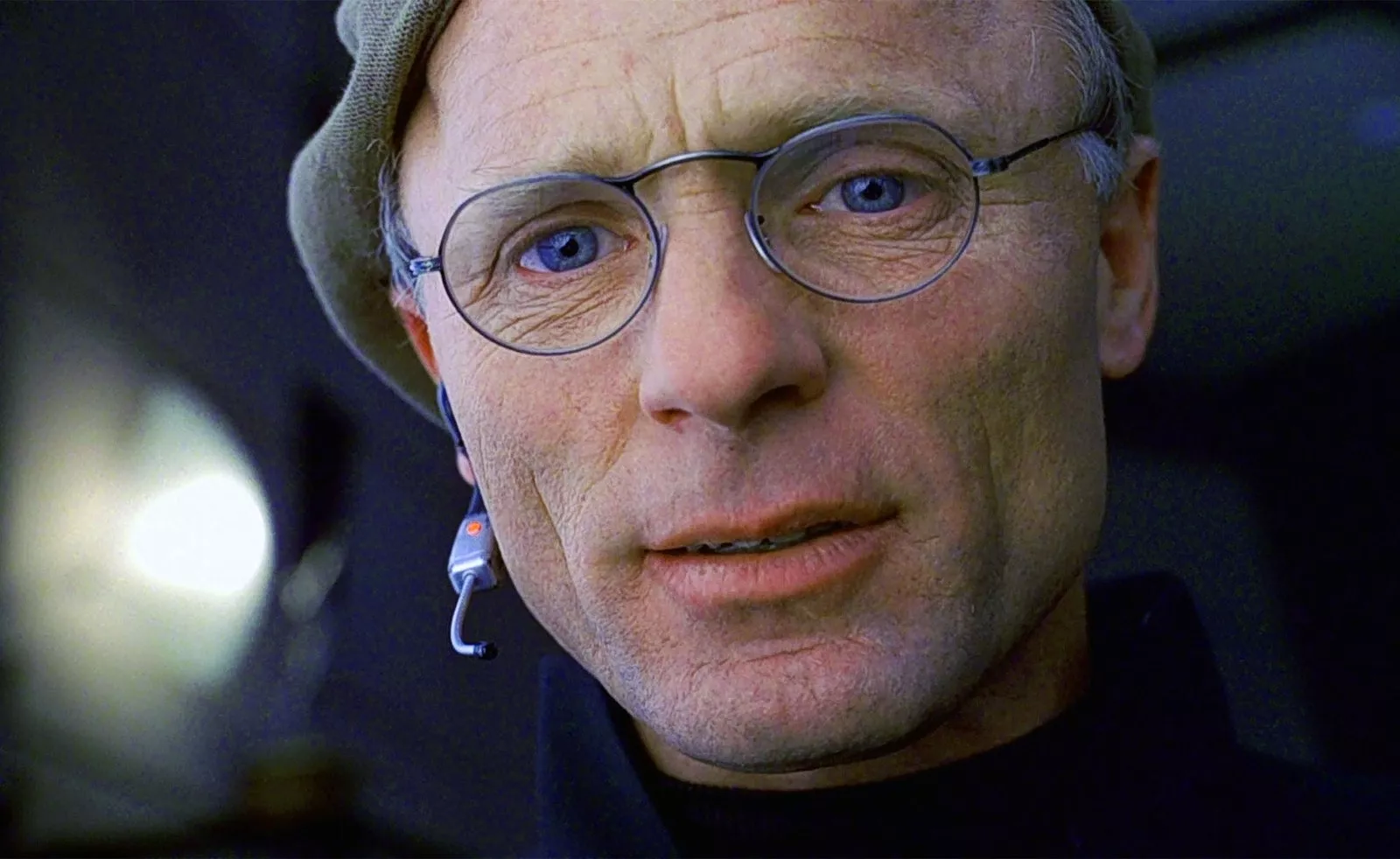
“Do crimes exist within the realm of art?” This thought-provoking question lies at the heart of “The Truman Show,” a remarkably prescient film starring Jim Carrey and directed by Peter Weir. Carrey portrays Truman Burbank, a young boy who was legally adopted by a television studio and raised under constant surveillance for the entertainment of millions. Every aspect of Truman’s life is broadcasted, even as he grows into adulthood and develops an innate sense of curiosity and exploration. As Truman’s spirit yearns for freedom, the production team must devise increasingly intricate methods to confine him to the artificial island set. Eventually, Truman confronts his creator, the artist Cristof (played by Ed Harris), who has orchestrated the show as a grand artistic installation.
In the context of the movie, Christof is presented as Truman’s antagonist, if not an outright villain. Driven by artistic pursuits, Christof manipulates every aspect of Truman’s existence, denying him the autonomy to pursue his own aspirations. When the film was released in 1998, the climactic scene where Truman defies his creator and ventures into the real world ignited public outrage against Christof. However, in today’s context, there might be a greater inclination towards empathy for him. Over the past 25 years since “The Truman Show,” reality programming has become an integral part of television, not solely due to its invulnerability to strikes. Shows like “Keeping Up with the Kardashians,” “Here Comes Honey Boo Boo,” and “Big Brother” exemplify how people willingly embrace the very world Truman sought to escape.
Tyler Durden (Fight Club, 1999)
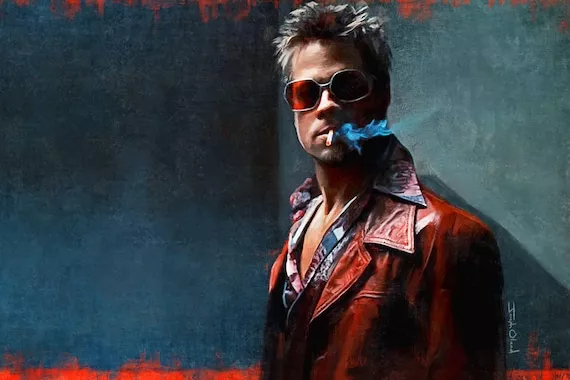
Concluding this list is the iconic Tyler Durden, a character who embodies many of the traits discussed in the preceding entries. Brad Pitt’s portrayal of this enigmatic figure in David Fincher’s “Fight Club” captivates audiences. Serving as a manifestation of the Narrator’s (Edward Norton) discontent with the mundane aspects of life, Durden espouses the pursuit of meaning through violence and the destruction of societal norms. Alongside hosting the eponymous underground club, where men seek to reclaim their masculinity by engaging in brutal fights, Durden’s audacious pranks, like splicing pornographic frames into cartoons, and even his act of detonating an actual building, depict the rebellion against society as an act of coolness and allure.
What sets Tyler Durden apart from the other characters in this list is his intricate relationship with the Narrator. Durden transcends being a mere alter ego; he represents the Narrator’s id, an unrestrained and self-righteous entity hidden within the submissive corporate man—a simmering cauldron of resentments. “Fight Club” argues that such potential for destruction resides within everyone, regardless of their outward meekness. Consequently, it comes as no surprise that generations of viewers, primarily men, continue to view Durden as a heroic figure. Some fail to grasp the character’s fascist nihilism, while others, more troublingly, wholeheartedly embrace it, believing that they too possess an alluring Durden lurking within their own identities.
